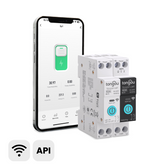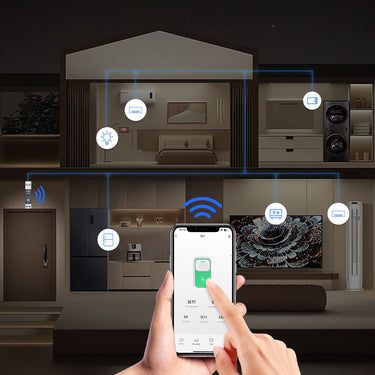What is the difference between rccb and elcb?

ELCB vs RCCB | Difference between ELCB and RCCB | Animation
source: https://www.youtube.com/watch?v=4J4LhGMd1Hw
Circuit breakers play a key role in protecting electrical systems from faults. This article will take an in-depth look at the differences between a RCCB (Residual Current Circuit Breaker) and an ELCB (Earth Leakage Circuit Breaker), explaining their respective meanings, types, functions, construction, and costs, and ultimately determining which is the better circuit breaker.
What is ELCB?
An Earth Leakage Circuit Breaker (ELCB) is a safety device used in electrical installations to prevent electric shock and protect electrical circuits from current leakage. ELCBs can detect electrical currents leaking to the earth, which could indicate faulty wiring or dangerous conditions.
Types of ELCBs
- Voltage ELCB: Operates by detecting a voltage rise across a resistance in the earth path.
——Pros: Simple design, Cost-effective.
——Cons: Cannot detect all types of earth faults.
- Current ELCB: Detects earth leakage current using a zero-sequence current transformer.
——Pros: More sensitive to ground faults.
——Cons: Slightly more expensive compared to voltage types.
What is RCCB?
A Residual Current Circuit Breaker (RCCB) is a device designed to detect and prevent low-voltage circuit faults by disconnecting the circuit whenever it senses an imbalance between live and neutral currents. It is particularly effective in preventing electric shocks and electrical fires caused by ground faults.
Types of RCCB
1. Pole RCCB: Protects single-phase systems (live and neutral).
2. Pole RCCB: Protects three-phase systems (three-phase wires and neutral).
Comparison of ELCB and RCCB
ELCB and RCCB difference: Function
ELCB: Detects earth leakage through voltage rise across a resistance or imbalance current to the earth.
MCCB: Detects imbalance between live and neutral currents indicating potential electrical faults.
ELCB and RCCB difference: Sensitivity
ELCB: Primarily detects faults where there is a direct earth connection. MCCB:More sensitive to a wider range of leakage currents, even small imbalances.
ELCB and RCCB difference: Installation
ELCB: Older installations may use voltage ELCBs; current ELCBs are similar in installation to RCCBs.
MCCB:Common in modern installations for both residential and commercial applications.
ELCB and RCCB difference: Maintenance
ELCB: Requires regular testing to ensure proper function. Voltage types may need frequent testing.
MCCB:Requires less maintenance due to fewer moving parts and higher reliability.
ELCB and RCCB difference: Effectiveness
ELCB: Voltage type ELCBs might miss some fault conditions where there is no rise in earth voltage.
MCCB:Highly effective in detecting subtle imbalances and protecting against electric shock and fires.
ELCB and RCCB difference: Price
ELCB: Generally cheaper than RCCBs, but prices can vary based on type and specifications.
MCCB:Slightly more expensive due to advanced sensitivity and reliability features.
ELCB and RCCB difference: Availability
ELCB: Becoming less common due to advancements in RCCB technology.
MCCB:Widely available and preferred in most modern electrical safety applications.
ELCB and RCCB difference: Applications
ELCB: Suitable for detecting faults with direct earth connections, typically in older installations.
MCCB:Ideal for protecting a wide range of applications including residential homes, commercial buildings, and industrial facilities.
Which One is Better: RCCB or ELCB?
When choosing between RCCB and ELCB, it's important to consider the specific requirements of your electrical installation:
1. Safety and Sensitivity: RCCBs are generally more sensitive and provide better protection against a broader range of electrical faults compared to ELCBs, especially voltage-type ELCBs.
2. Application: For modern electrical installations, RCCBs are typically preferred due to their advanced functionality and reliability.
3. Maintenance Needs: RCCBs tend to require less frequent maintenance and testing compared to voltage-type ELCBs.
4. Compatibility: Assess your existing electrical infrastructure. If it is an older setup, an ELCB might be currently in use, but upgrading to an RCCB could enhance safety.











